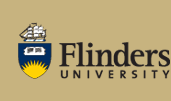
The Bachelor of Speech Pathology requires four years of full-time study and is not offered on a part-time basis. An honours degree can be completed in four years by undertaking additional units, including a research project at honours level, in Year 4.
Graduates are eligible for membership of the Speech Pathology Association of Australia.
The course is offered by the Faculty of Health Sciences.
The minimum requirements for consideration for entry to all undergraduate courses are specified in detail in the University Entry Requirements.
The course prepares students for a professional career in speech pathology. It is designed to provide graduates with the knowledge and skills to:
Graduates of the course are expected to demonstrate the following knowledge:
Graduates of the course are expected to demonstrate the following skills:
To qualify for the Bachelor of Speech Pathology a student must complete 144 units with a grade of P or NGP or better in each topic, according to the program of study below.
Normally at least 30 units must be completed at a given level before proceeding to any higher level topics.
36 units comprising
SPTH1102 Introduction to Anatomy and Physiology (4.5 units)
SPTH1103 Anatomy and Physiology of Speech (4.5 units)
SPTH1104 Clinical Skills and Practice 1 (4.5 units)
SPTH1105 Child Development and Learning (4.5 units)
SPTH1201 Psychosocial Aspects of Speech Pathology (4.5 units)
SPTH1202 Research Methods in Speech Pathology (4.5 units)
SPTH1506 Linguistics and Phonetics 1 (4.5 units)
SPTH1509 Linguistics and Phonetics 2 (4.5 units)
36 units comprising
SPTH2901 Professional Studies & Communication Sciences 1A (Communication Development & Disorders: Birth to Pre-School) (4.5 units)
SPTH2902 Professional Studies & Communication Sciences 2A (Communication Development & Disorders: School Age to Adolescence) (4.5 units)
SPTH2903 Clinical Skills and Practice 1A (Communication Development and Disorders) (4.5 units)
SPTH2904 Clinical Skills and Practice 2A (Communication Development and Disorders: School Age to Adolescence) (4.5 units)
SPTH2905 Professional Studies & Communication Sciences 1B (Motor Speech Disorders) (4.5 units)
SPTH2906 Professional Studies & Communication Sciences 2B (Voice and Swallowing Disorders) (4.5 units)
SPTH2907 Clinical Skills and Practice 1B (Motor Speech Disorders) (4.5 units)
SPTH2908 Clinical Skills and Practice 2B (Voice and Swallowing Disorders) (4.5 units)
36 units comprising
SPTH3901 Professional Studies and Communication Sciences 3A (Acquired Language Disorders 1) (4.5 units)
SPTH3902 Professional Studies and Communication Sciences 4A (Acquired Language Disorders 2) (4.5 units)
SPTH3903 Speech Pathology Practicum 1 (4.5 units)
SPTH3904 Speech Pathology Practicum 2 (4.5 units)
SPTH3905 Clinical Skills and Practice 3 (Complex Disorders - Paediatrics) (4.5 units)
SPTH3906 Clinical Skills and Practice 4 (Complex Disorders - Adults) (4.5 units)
SPTH3907 Professional Studies and Communication Sciences 3B (Complex Disorders - Paediatrics) (4.5 units)
SPTH3908 Professional Studies and Communication Sciences 4B (Complex Disorders - Adults) (4.5 units)
36 units comprising
SPTH4710 Research Methods in Speech Pathology 2 (4.5 units)
SPTH4720 Clinical Skills and Practice (Transition to Practice) (4.5 units)
SPTH4901 Speech Pathology Practicum 3 (13.5 units)
SPTH4902 Speech Pathology Practicum 4 (13.5 units)
Except with the permission of the Faculty Board:
The award of a grade of Fail (F) in the same topic on more than one occasion or failure to complete the course within seven consecutive years may constitute prima facie evidence of unsatisfactory progress for the purposes of the University&##39;s Policy on Student Progress.
CRICOS Provider: 00114A | Updated: 20 Sep, 2010